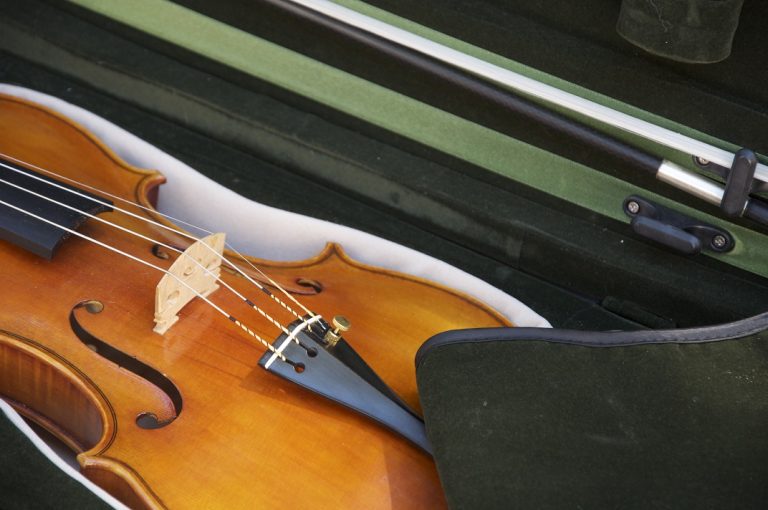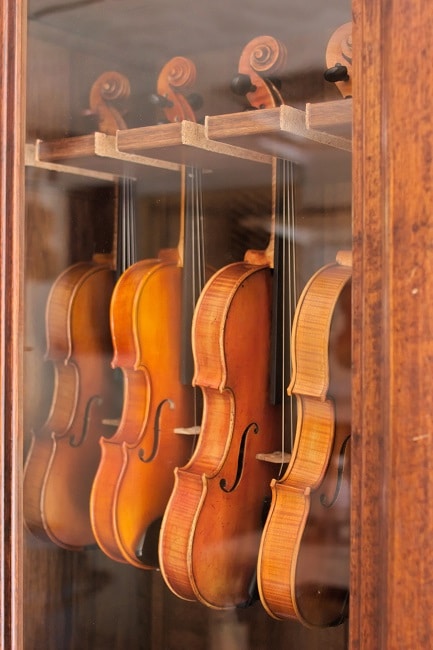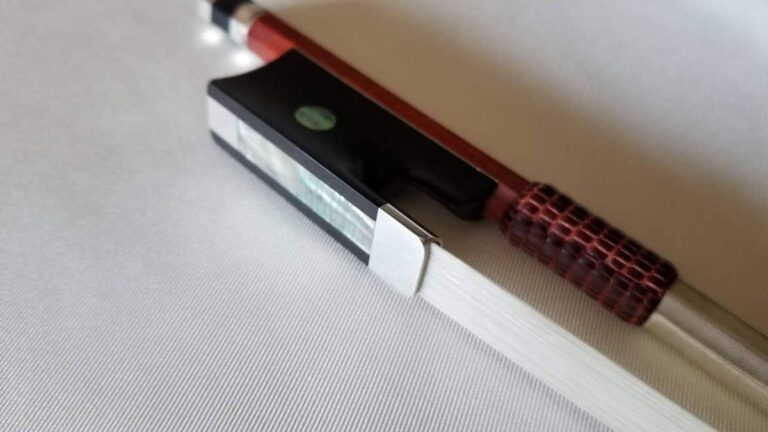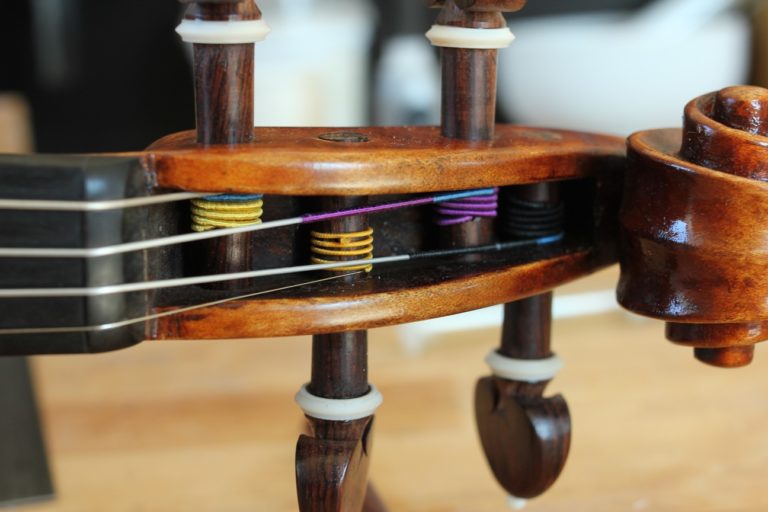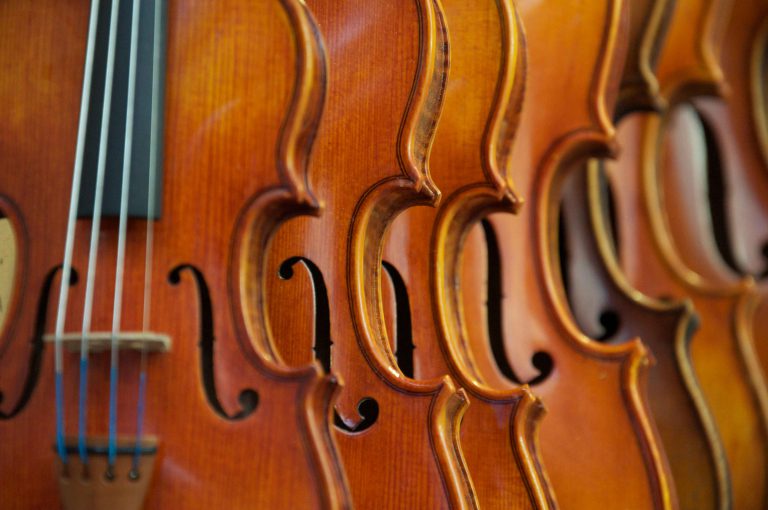The topic of strings tends to resonate with most violinists. They are indeed a crucial aspect of the instrument’s sound quality, as they concern both the instrument’s tone and playability. This is why choosing the best violin strings is essential for beginners. That being said, there is such a wide selection of brands and models, all with their various tensions and types, that it can easily get overwhelming. It is not unusual to feel lost in the search for strings, especially if it is out of your realm of expertise. I encourage you to follow this guide, which provides detailed information the best violin strings for beginners, so you can confidently choose the ones that are right for you.
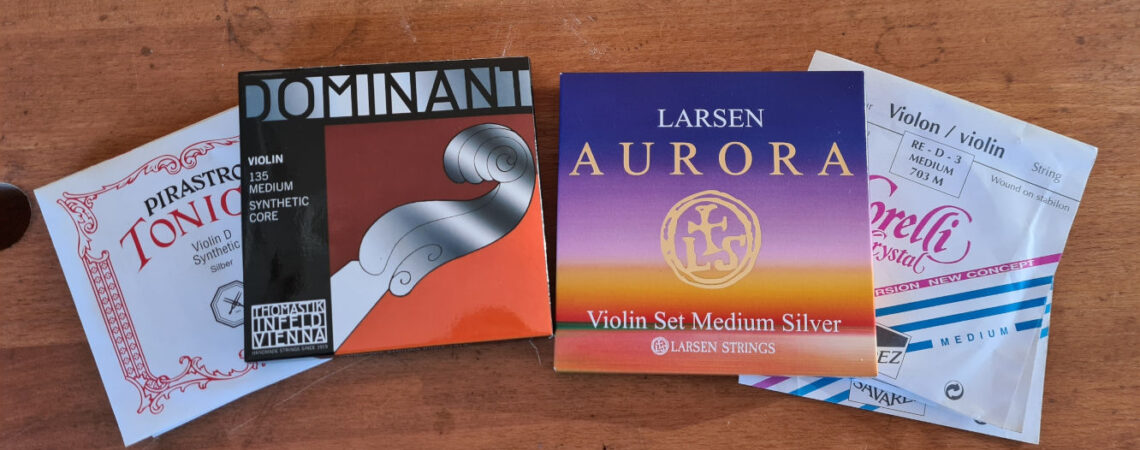
Best violin strings for beginners
First of all, what is a beginner string? It is important to clarify, because this concept is often misunderstood. To make a long story short, certain strings are more accessible than others for beginner players. As musicians constantly seek to improve, technically all strings can be considered useful in violin studies. However, for the purpose of this article, I will limit myself to the practical side of things and refer here to amateur musicians working within a limited budget. With this in mind, I find it important to consider the following characteristics when looking for strings:
- Excellent value for the price, allowing you to obtain the best results even within a limited budget.
- Excellent sound production focused more on richness and delicacy than on power.
- Excellent balance and durability.
An important note on beginner violin strings
There is no master string on the market that functions perfectly for all violin setups. It is for this very reason that I would like to discuss string options that (in my opinion) will be optimal for your use. That said, you will need to ensure that the strings you choose correspond to your unique musical needs. I will summarize everything again in the conclusion.

Thomastik Dominant
- Price: €48
- Tone quality: Neutral
Let’s begin with the most well-known and popular violin strings. These are the oldest synthetic strings on the market. This brand is carried by most music stores, so they are generally easy to find.
These strings are recognized in violin studies for their great durability and ease of play. They are also known for producing a stable tone quality, which although quite neutral, highlights the natural vibrations of the instrument. This aspect is a bit of a double-edged sword though, as they work well with certain instruments, but will never balance out a violin whose natural tone quality is either too bright or too dark.
To save on costs, an alternative version would be the Pirastro Tonica strings (pictured below). All the strings in this set, with the exception of the chanterelle, are the same as the popular Dominant set discussed above. The only difference is the E string, which is more sensitive in the highs and packs more of a punch, which not everyone likes.

Pirastro Tonica Gold Label
- Price: €37
- Tone quality: clearer
The Gold Label version of the Tonica series is rather intriguing. These strings have become popular because they are a great value for the price. They are included with many instruments and are even regularly used by professional players. They are very supple and produce a pleasant acoustic. As their name indicates, they lend additional tone quality to softer violins.
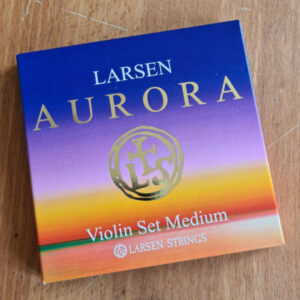
Larsen Aurora
- Price: €42
- Tone quality: More candid and bright
Aurora Larsen strings are an attempt to copy the Dominant formula, but with a twist. They are marketed as having a direct, clear sound that both sculpts and refines the sound texture produced by the violin. These strings are well adapted to violins that lack energy in the body sound.
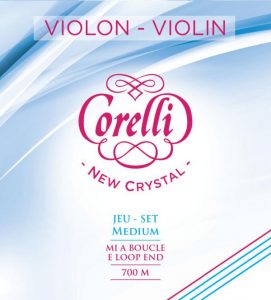
Corelli New Crystal
- Price: €47
- Tone quality: Clean and warm
The Crystals are known for their supple touch and warm tone. This makes them ideal strings to start with. They also make playing more enjoyable, as they really soften the sound quality and make practicing more bearable. By that, I simply mean that instruments with a very crystalline and high-pitched tone like violins are frequently found in beginners’ or student instruments, and these strings help reduce the powerful sound emitted by this type of instrument.
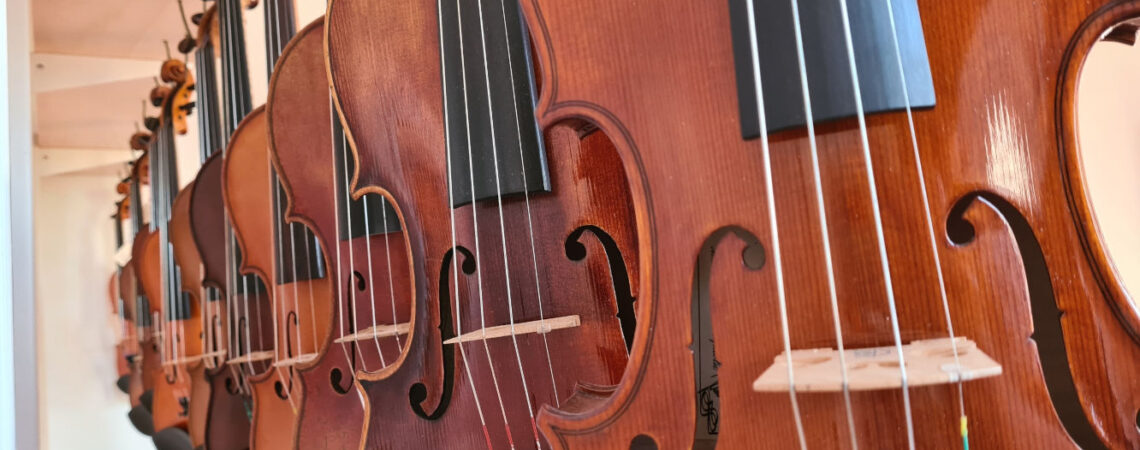
The best beginner strings for violin: how to choose?
Now that we have explored the best string options, now it’s time to decide which ones are best or you. So, let’s discuss several hypothetical situations:
Your violin is well-balanced
Without question, you can opt for the Dominant strings. With a well-balanced instrument, these strings are efficient and will answer all your needs and allow the natural tone quality of the instrument to come forth.
Your violin is shrill and bright
In this situation, I would recommend the Corelli New Crystal strings. These will round out the sound of your instrument to make it sound less strident.
Your violin is subdued or dark
Here, you can go with either the Tonica or Aurora string options, both of which will help brighten the tone quality of your instrument. They will give extra vigor to a subdued instrument and help bring a more decisive quality to the overall sound.
The worst strings for beginners
While I have already advised you on which strings to choose from as a beginner, I also want to discuss which strings you should avoid at all costs.
First, you should avoid any bargain brand steel strings. Even if the low price might be tempting (sometimes only costing between 5 and 15 euros), it is not a good investment. Not only will they be very difficult to play, but they will probably not sound as good as you would expect on a classical (non-electric) violin.
Second, I would advise against gut strings, which can be a nightmare. Not only are gut strings expensive, but they have a short life span and despite their pleasant sound, are unstable and constantly need to be retuned.
For further information
I encourage you to read this article which discusses different string types:
[blog_posts orderby=”date” ids=”5569″]

